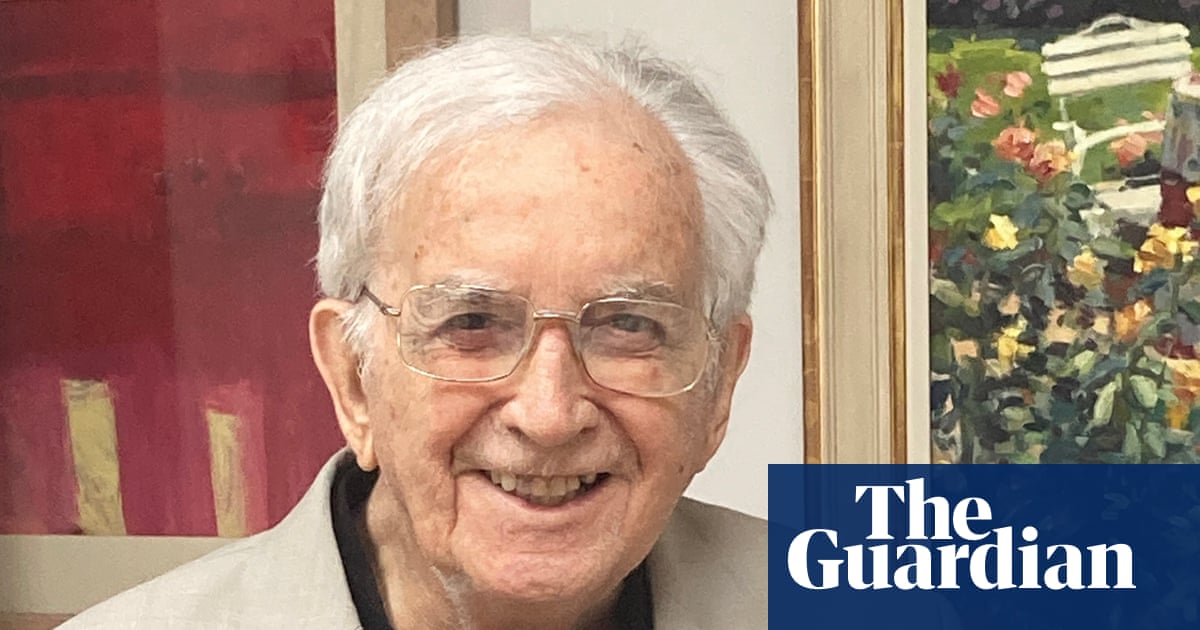
My friend David Enoch, who has died aged 99, made his greatest mark as a campaigner for humane mental health care and was a founding fellow of the Royal College of Psychiatrists. In the 1960s he served as a medical adviser to Barbara Robb, the psychotherapist who exposed neglect and abuse in long-stay NHS psychiatric wards and, through her controversial book Sans Everything (1967), pushed for major reforms.
Although health ministers, including Kenneth Robinson and Enoch Powell, initially dismissed the allegations, the campaign eventually led to policy changes. As the consultant in charge at Shelton hospital in Shrewsbury, David introduced “care in the community”, turning the former asylum into a training ground for reforms.
Born in Penygroes, south Wales, to Maria (nee Davies) and Thomas Enoch, a coal hewer, David expected he would enter the ministry. However, after school at Amman Valley grammar, Carmarthenshire, where he was head boy, he was conscripted into the British army during the second world war at 18, and served on India’s north-west frontier during partition. He later recalled hearing Jawaharlal Nehru and Muhammed Ali Jinnah address huge crowds while stationed with the Sikh Regiment.
The suffering he witnessed persuaded him to study medicine, and when he was demobilised went to St Thomas’ hospital medical school in London. He graduated in 1954 and trained at University College hospital and the Maudsley hospital in the capital, where he studied modern psychopharmacology. While at Runwell hospital in Wickford, Essex (which closed in 2010), in the late 50s, David produced a prizewinning paper on Capgras syndrome, a rare psychiatric condition.
He compiled case studies in his 1967 book Uncommon Psychiatric Syndromes, which was translated into several languages and became a standard work of reference. Although this made his name in the wider profession, David said his real calling was improving patient care. His research complemented his activism, demonstrating that rare delusional disorders deserved compassion rather than ridicule.
After leading reforms at Shelton hospital, he was headhunted to become a senior consultant at the Royal Liverpool University hospital in 1974. There he built a dynamic department and taught generations of psychiatrists, insisting they treat “body, mind and spirit together”. Students recalled his charisma and sense of humour: he was nicknamed “Enoch the Uncommon”, after his book, and was known for his insistence that juniors listen carefully to patients.
A committed Christian, David published books such as Healing the Hurt Mind (1983) and I Want a Christian Psychiatrist (2006), which blended faith and psychiatry. He summarised this in his autobiography Enoch’s Walk: Ninety-Five, Not Out (2022).
He saw his last patient in 2012, but remained active as a lecturer and lay preacher. His first wife, Joyce (nee Davies), died in 1993. In 1996 he married Anne (nee Bellamy), a head teacher.
David is survived by Anne, his son Dafydd, from his first marriage, and six grandchildren.
Source link

